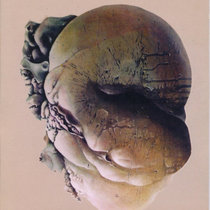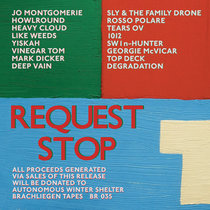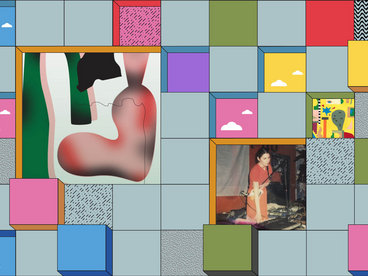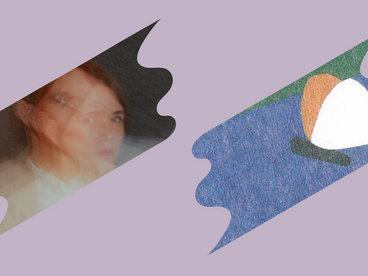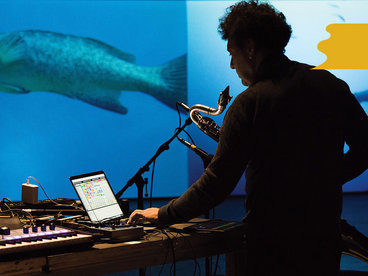
insect
by dave phillips
-
Streaming + DownloadIncludes unlimited streaming via the free Bandcamp app, plus high-quality download in MP3, FLAC and more.
4 CHF or more
-
LP
Record/Vinyl + Digital Albumuntreated field recordings made in thailand in 2001; recorded in national parks and on quiet islands, featuring mostly insect & frog sounds but also birds, primates and climatic events.
as presented live on 6th december 2002 at egocity in zürich switzerland.
first released on CDR by Digitally Destroyed Daffodil Discs in an edition of 50 (transparent cover) in 2003. second edition on CDR by dp, made as needed & mostly sold on tour (200 to 300 copies). third edition released on LP by πτώματα κάτω απο το κρεββάτι in 2010, 200 copies made.
comes in plain plastic sleeve - no cover; all art & info is on the labels.
Includes unlimited streaming of insect via the free Bandcamp app, plus high-quality download in MP3, FLAC and more.Sold Out
1. |
side A
19:43
|
|||
|
...why do insects exist?
there’s more than a million insect-types. and thus theoretically also more than a million answers.
but really this question is rather unfair. maybe the question should be formulated differently: what if there were no insects anymore? scientists have asked themselves this question, and even though of course prognosis varies, one point is agreed upon by all: human life as we know it would cease to exist. entomologists give humans, after the hypothetical extinction of the invertebrates (of which insects form the majority), another 10 years. however fast our demise, a vanishing of the insect-population would in any case have devastating effects.
insects are important, vital, for us, mainly for their services, the most apparent of which is pollination. plants fall back on animal assistants because they cannot move freely. insects pollinate a vast amount of plants, especially those important for us; fruit-bearing plants as well as vegetables as well as onions, garlic and chili, coffee, tea, cocoa... the soy-bean doesn’t require pollination, but visits by bees and other pollinators increase its fruitbearing abilities and resistancy and improves the harvest.
after our food vanishing our clothing would disappear. the most important natural fibres wouldn’t exist without the adding of insects. cottonwool for example is pollinated by insects.
if insects were to perish, humans would hardly miss them as a source of food. however, the human independence from insects as a food-source is an exception among the vertebrates. most vertebrates depend on insects. for freshwater fish they constitute a main source of food; amphibians need insects; smaller reptiles prefer insects; insects and their relatives come up for more than a third of the food-intake of feathered game and songbirds. the list of insect-devouring mammals is long too...
insects are also the most important recyclists on our planet. without them heaps of dung, dead wood and carrion would keep on piling up. earth-bound insects fertilise and enrichen the soil with nutritive substances...
... and why do humans exist?
|
||||
2. |
side B
19:32
|
|||
|
...why do insects exist?
there’s more than a million insect-types. and thus theoretically also more than a million answers.
but really this question is rather unfair. maybe the question should be formulated differently: what if there were no insects anymore? scientists have asked themselves this question, and even though of course prognosis varies, one point is agreed upon by all: human life as we know it would cease to exist. entomologists give humans, after the hypothetical extinction of the invertebrates (of which insects form the majority), another 10 years. however fast our demise, a vanishing of the insect-population would in any case have devastating effects.
insects are important, vital, for us, mainly for their services, the most apparent of which is pollination. plants fall back on animal assistants because they cannot move freely. insects pollinate a vast amount of plants, especially those important for us; fruit-bearing plants as well as vegetables as well as onions, garlic and chili, coffee, tea, cocoa... the soy-bean doesn’t require pollination, but visits by bees and other pollinators increase its fruitbearing abilities and resistancy and improves the harvest.
after our food vanishing our clothing would disappear. the most important natural fibres wouldn’t exist without the adding of insects. cottonwool for example is pollinated by insects.
if insects were to perish, humans would hardly miss them as a source of food. however, the human independence from insects as a food-source is an exception among the vertebrates. most vertebrates depend on insects. for freshwater fish they constitute a main source of food; amphibians need insects; smaller reptiles prefer insects; insects and their relatives come up for more than a third of the food-intake of feathered game and songbirds. the list of insect-devouring mammals is long too...
insects are also the most important recyclists on our planet. without them heaps of dung, dead wood and carrion would keep on piling up. earth-bound insects fertilise and enrichen the soil with nutritive substances...
... and why do humans exist?
|
||||
about
a mix of untreated field recordings made in thailand in 2001.
as presented live on 6th december 2002 at egocity in zürich switzerland.
first released on CDR by Digitally Destroyed Daffodil Discs in an edition of 50 (transparent cover) in 2003. second edition on CDR by dp, made as needed & mostly sold on tour (200 to 300 copies). third edition released on LP by πτώματα κάτω απο το κρεββάτι in 2010, 200 copies made.
as presented live on 6th december 2002 at egocity in zürich switzerland.
first released on CDR by Digitally Destroyed Daffodil Discs in an edition of 50 (transparent cover) in 2003. second edition on CDR by dp, made as needed & mostly sold on tour (200 to 300 copies). third edition released on LP by πτώματα κάτω απο το κρεββάτι in 2010, 200 copies made.
credits
released January 1, 2003
insect drawing by Doris Tomasoni
all rites reversed
PLAY LOUD
insect drawing by Doris Tomasoni
all rites reversed
PLAY LOUD
license
all rights reserved
tags
about
dave phillips Zürich, Switzerland
sound as communication in direct and primal form, a language, a tool of metaphysics, a conscience, a consciousness. works
that oppose the omnipresent restriction and reduction of life, to activate primordial shared emotions otherwise hidden under the debris of this crumbling civilisation.
ritual protest music to curse homo sapiens out of its infancy.
... more
contact / help
dave phillips recommends:
If you like dave phillips, you may also like:































